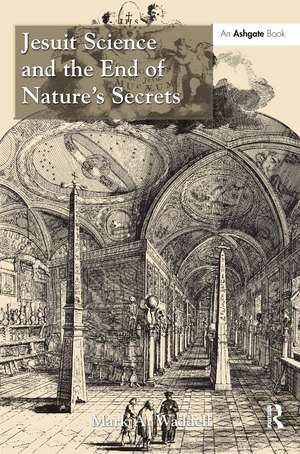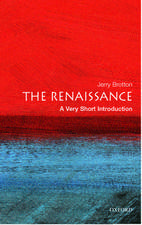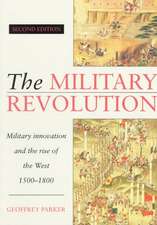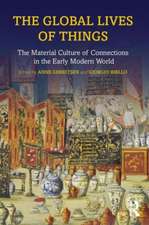Jesuit Science and the End of Nature's Secrets
Autor Mark A. Waddellen Limba Engleză Hardback – 28 iun 2015
| Toate formatele și edițiile | Preț | Express |
|---|---|---|
| Paperback (1) | 259.10 lei 6-8 săpt. | |
| Taylor & Francis – 14 oct 2024 | 259.10 lei 6-8 săpt. | |
| Hardback (1) | 1004.55 lei 6-8 săpt. | |
| Taylor & Francis – 28 iun 2015 | 1004.55 lei 6-8 săpt. |
Preț: 1004.55 lei
Preț vechi: 1225.06 lei
-18% Nou
Puncte Express: 1507
Preț estimativ în valută:
192.22€ • 201.20$ • 159.99£
192.22€ • 201.20$ • 159.99£
Carte tipărită la comandă
Livrare economică 01-15 aprilie
Preluare comenzi: 021 569.72.76
Specificații
ISBN-13: 9781472449726
ISBN-10: 147244972X
Pagini: 224
Ilustrații: Includes 16 b&w illustrations
Dimensiuni: 156 x 234 x 14 mm
Greutate: 0.58 kg
Ediția:Revised
Editura: Taylor & Francis
Colecția Routledge
Locul publicării:Oxford, United Kingdom
ISBN-10: 147244972X
Pagini: 224
Ilustrații: Includes 16 b&w illustrations
Dimensiuni: 156 x 234 x 14 mm
Greutate: 0.58 kg
Ediția:Revised
Editura: Taylor & Francis
Colecția Routledge
Locul publicării:Oxford, United Kingdom
Public țintă
AcademicNotă biografică
Mark A. Waddell is an Assistant Professor at Michigan State University, with a joint appointment in the Lyman Briggs College and the Department of History. He received his PhD in the History of Science, Medicine, and Technology from the Johns Hopkins University in 2006.
Cuprins
Introduction; Chapter 1 The Crisis of Certainty; Chapter 2 Building a Better Ontology; Chapter 3 The Demise of Occult Qualities; Chapter 4 Spectacle, Uncertainty, and the Fallibility of the Eye; Chapter 5 Probabilism, or the World as it Might Be; Chapter 6 The Culture of Marvels, Exposed; Chapter 101 Conclusion;
Recenzii
"In this book Waddell has managed to convey the dilemmas facing seventeenth-century religious trying to reconcile emerging science — the legacy of Aristotle — with the mysteries of nature. He is to be commended on the clarity of his language in presenting the development of thought where there was much obfuscation."
- John N. Crossley, Monash University
"Through a series of case studies on ontology, demonology, magnetism and the occult, Mark A. Waddell presents a clear and orderd discourse on hidden causes."
- Hannah Murphy, Oriel College, Oxford
- John N. Crossley, Monash University
"Through a series of case studies on ontology, demonology, magnetism and the occult, Mark A. Waddell presents a clear and orderd discourse on hidden causes."
- Hannah Murphy, Oriel College, Oxford
Descriere
Jesuit Science and the End of Nature’s Secrets explores how several prominent Jesuit naturalists - including Niccolò Cabeo, Athanasius Kircher, and Gaspar Schott - tackled the problem of occult or insensible causation in the seventeenth century. This book documents how particular Jesuits sought to reveal and expose nature’s myriad secrets through an innovative blending of technology, imagery and experiment. Moving beyond the conventional Aristotelianism mandated by the Society of Jesus, they set forth a vision of the world that made manifest the works of God as Creator, no matter how deeply hidden those works were. The book thus not only presents a narrative that challenges present-day assumptions about the role played by Catholic religious communities in the formation of modern science, but also captures the exuberance and inventiveness of the early modern study of nature.











